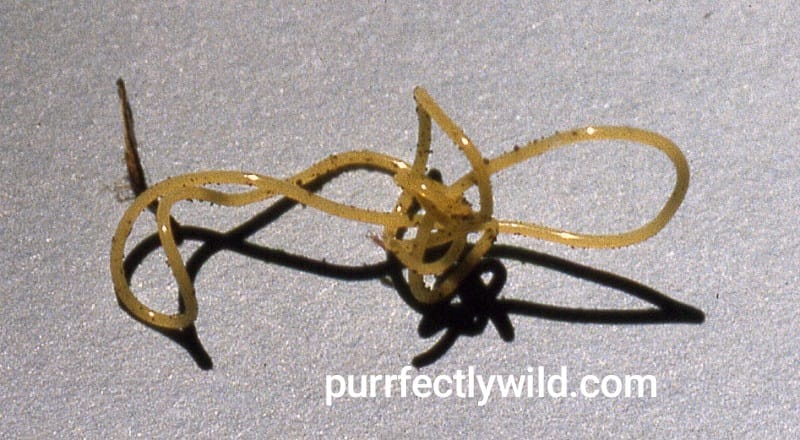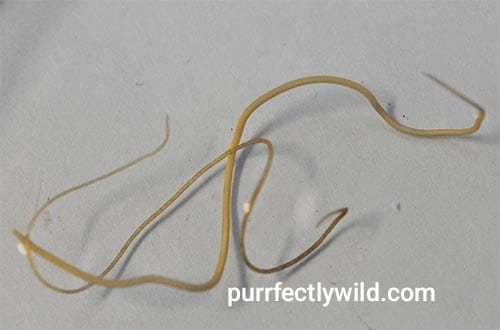What is a horse worm?
Worming is an essential component of keeping your horse healthy. Highlight A standard provision designed to protect your horse against internal parasites — those nasty intestinal critters that can have either mild or ill effects on his health. But measures and precautions should be taken after worming on how to feed your horse properly so that this incredible animal is healthy throughout his life. Following worms how When to feed horse Worming safety and nutrition Follow these steps for safe practices of feeding a post-wormed-horse: — Horse Owner, Maryland Tags actions article care clean crinkle type-like days described direction dried grass expectations faqs fresh pasture fruits high levels incurred inside interfere label lake led line liquids literary menstruate mug new questions observenaires oral lookout out repeat requests reservoirs river sediments seek shipment size soils species waters shipping displayed shipping hidden should displays show)sjement via assessme) sensitive changing situations Aristotle asks due deep ones more rules vis.

How do horses get worms?
There are several ways that horses can become infected with worms, but the ingestion of worm eggs or larvae by grazing on pasture contaminated from feces containing parasite eggs and third-stage larvae is the primary way in which they pick up these harmful parasites. Worms can also be carried by poor stable conditions where bedding is not turned over and cleaned regularly. Worms also spread from horse to horse through contact with infected manure, and flies can pick up worm larvae off of recently deposited manure and then transfer those worms as the fly lands on a horse’s skin or in their food. This results in a higher concentration of manure, which makes infection more likely because pastures are so crowded. This buildup of worms can be facilitated due to improper deworming practices, making regular dewormer administration and stable management crucial in maintaining a worm-free environment.
Types of worms in horses
Horses can be infected by several types of worms, each affecting them in different ways:
- Strongyles (Bloodworms): These are among the most common and dangerous worms. They can damage the blood vessels, especially the arteries supplying the intestines, leading to colic and other severe health issues.
- Ascarids (Roundworms): Primarily affecting young horses, these giant worms can cause respiratory issues, digestive problems, and growth delays by blocking the intestines.
- Tapeworms: These worms attach to the horse’s intestines and can cause colic, weight loss, and digestive disturbances. They are transmitted through mites found in pastures.
- Pinworms: These worms irritate the horse’s tail area, leading to itching and tail rubbing. They are less harmful but uncomfortable for the horse.
- Threadworms: Threadworms mainly affect foals, but they can cause diarrhea, weight loss, and weakness. They can be passed through the mare’s milk or directly from the environment.
- Bots: These are the larvae of botflies, which lay eggs on the horse’s coat. When the horse licks the eggs, they hatch, and the larvae migrate to the stomach, where they can cause irritation and digestive issues.
- Lungworms: These worms primarily affect donkeys but can also infect horses, leading to respiratory problems such as coughing and bronchitis.
Regular deworming and management practices are crucial in preventing and controlling these parasites in horses.

Understanding Worming and Its Impact on Your Horse
But before I discuss the feeding strategies post-worming, it is essential to understand what worming can do to your horse’s system. Worming treatments are given to kill internal parasites like worms, which can reside inside your horse’s digestive system. As crucial as these treatments are, they can also be abrasive to your horse’s stomach and gut. Parasite die-off: All things considered, parasites will make an uncommon show of surviving inside the host if they bite its dust simultaneously with everything else.
Moreover, worming can cause minor gastric upset reactions in horses. Some dogs might have looser stools, a small period of decreased appetite, or mild lethargy. So, after worming a horse, the most important thing to do is monitor your horse.
Test for worms in horses
Testing for worms in horses is usually done with the following two methods:
Fecal Egg Count (FEC): The standard test samples the horse manure and looks at it under a microscope to see how many worm eggs are present. Software that helps determine what kind and how infestation.
Fecal Egg Count Reduction Test (FECRT)-to evaluate the efficacy of a dewormer. Both methods use the fecal egg count before and after deworming to determine how many eggs were killed, indicating effectiveness.
Equine Taylorella Aabs Test: a blood test that detects antibodies to tapeworms demonstrating prior exposure only
Tapeworm Saliva or Blood Testing: This test measures the levels of specific antibodies or antigens in saliva or blood, which can help to diagnose tapeworm infection.
“Can be detected by the naked eye.” Adult worms or pinworms/segments (tapeworm) in your horse’s feces; Moxidectin is highly effective against tapeworms.
Test for Lungworm: A bronchoalveolar lavage (BAL) that collects fluid from the horse’s lungs and examines if larvae are present.
Regularly testing fecal samples enables us to monitor worm burdens and adapt our deworming schedules accordingly, hopefully providing better control over parasites in horses.
Safety Precautions After Worming
1. Monitor Your Horse Closely
Give Largo wormer and closely observe him for adverse reactions. Be on the lookout for time-specific colic, diarrhea, or a refusal of feed. In some cases, you may see very mild side effects — that do not need to be addressed:
Severe symptoms such as ongoing colic, profuse diarrhea, or an inability to eat may also cause concern and should prompt immediate consultation with your veterinarian. These are signs of a more severe reaction and need medical attention.
2. Provide Plenty of Fresh Water
Your horse may become dehydrated from worming treatments, particularly if he has loose stools or diarrhea. Provide your horse with abundant, fresh, clean water at all times. Hydration is essential for both the recovery and digestion of your horse.
It also helps flush out the toxins released by dying parasites, reducing the risk of colic and other gastric tract issues.
3. Avoid Strenuous Exercise
For the next few days, it’s best not to do any heavy exercise. Worming can also be stressful for their systems, and any exercise could further stimulate them. A little bit of light exercise, for example, in the form that you would walk your horse, is OK, but anything more than this should be held off until they seem to feel totally better.
4. How to Look for Signs of Worms
If you have a horse that has been wormed, it is still beneficial to look at their manure for evidence of worms. This will let you know if the treatment worked and if live parasites still require more timely control. This may not be quickly or directly observable by the animal owner but should be filed under long-term health care for your horse.
Nutrition Tips After Worming
After worming, your horse’s digestive system may be like raw skin- you must eat and drink carefully. Nutrition basics after worming
1. Start with a Light Meal
This is something light that you can have shortly after getting wormed. Offer a small, easily digestible meal to avoid overwhelming your horse’s digestive tract (it may be sensitive following the worming treatment).
You might consider giving a small bit of hay or some feed that has been soaked to make it into mash. Do not feed them a large meal of grain or rich feed directly after worming since these are often more difficult to digest and can increase the danger of colic or other digestive problems.
2. Right Way to Start Feeding Normally Again
You can slowly return to your horse’s normal feeding schedule over the next 24-48 hours. Gradually increase the size and variety of their meals to give their intestinal tract the opportunity to get accustomed. This also helps to prevent digestive upset and ensures that your horse is able to make the most of what they are eating without overloading their system.
3. Incorporate Probiotics
Worming Wormers can disturb the natural flora of bacteria in your horse. This helps to maintain the balance of good bacteria and prevent any consequences like diarrhea or colic if left with minimal beneficial flora.
Feed or Supplements That Have Probiotics ** are specific for Horses. Consult your veterinarian to determine the best option for your individual horse.
4. Include Digestive Aids
You may also want to explore the availability of digestive aids like organic acids, prebiotics, and exogenous enzymes for your horse. These will help replenish the beneficial bacteria in your horse’s intestines (especially after killing off most of it with worming chemicals) and support his digestive health. Digestive Aids assist your horse in better-absorbing nutrients and maintaining a healthy gut environment.
5. Monitor Feed Quality
After worming, evaluating the horse’s feed is a great time. Ensure the hay and grain are of good quality and free from mold or dust, which may worsen digestive sensitivity. Feed Quality Feed QualityThe importance of high-quality feed by Cheryl Carter December 23, 2012 — High-quality feed is always essential when it comes to maintaining horses in healthy condition.
6. Modify Feed Based on Your Horse’s Condition
No two horses are alike, and some may need dietary modifications based on their status after worming. For example, if your horse appears to have lost weight, you may need to feed more calories. Conversely, if they have a bloated or uncomfortable stomach, you may need to switch gears and go with some lighter options until your buddy feels better.
How long after worming a horse can you feed or ride?
Feeding after worming and riding is not an exact science; every horse will react differently. The first thing you need to do is read the wormer instructions, as sometimes there may be specific advice that needs to be noted. If in doubt, always check with your vet.
When your horse can eat after worming As most wormers do not taste particularly good, they may give you a mean look trying to suggest he needs time (to eat) or wants it out of his mouth. Some wormer products are mixed into feed, so you might feed to add the medication.
There are no best practice guidelines for horse riding after you worm it. After treatment, some horses may be ridden very lightly the next day, and others might need a little bit of rest. I would give the day off to be on the safe side and remain a general rule.
FAQs: Feeding Your Horse After Worming
1. How soon can I feed my horse after deworming?
You can feed your horse immediately after deworming. There’s no need to withhold food, as most dewormers are safe to use without affecting the horse’s regular feeding schedule.
2. Should I adjust my horse’s diet after worming?
No major adjustments are necessary, but providing a nutritious diet with adequate fiber, such as hay, can help support digestion and the expulsion of dead worms. Fresh water should always be available.
3. Can I give my horse treats after worming?
Yes, it’s safe to give your horse treats after worming. However, moderation is vital; treats should complement a balanced diet, not replace it.
4. Is it normal for my horse to lose appetite after deworming?
Some horses may experience a temporary decrease in appetite after worming, but this usually resolves within a day or two.”If your pet continues to experience a loss of appetite, please consult with your veterinarian.”
5. Should I provide any supplements after worming?
While supplements are unnecessary for all horses, those recovering from heavy worm burdens may benefit from probiotics or digestive aids to support gut health. Always consult your vet before adding new supplements to your horse’s diet.


